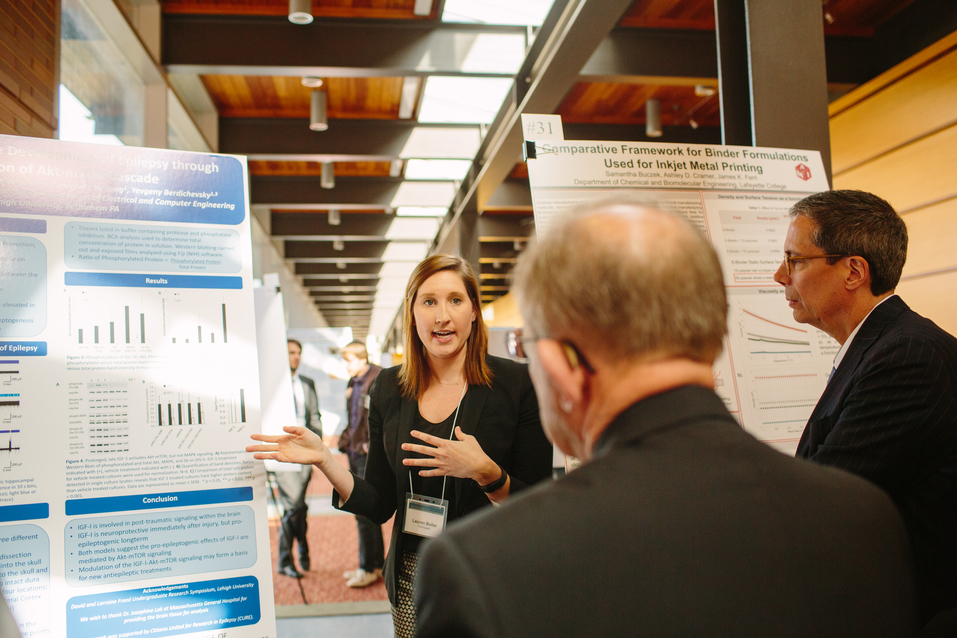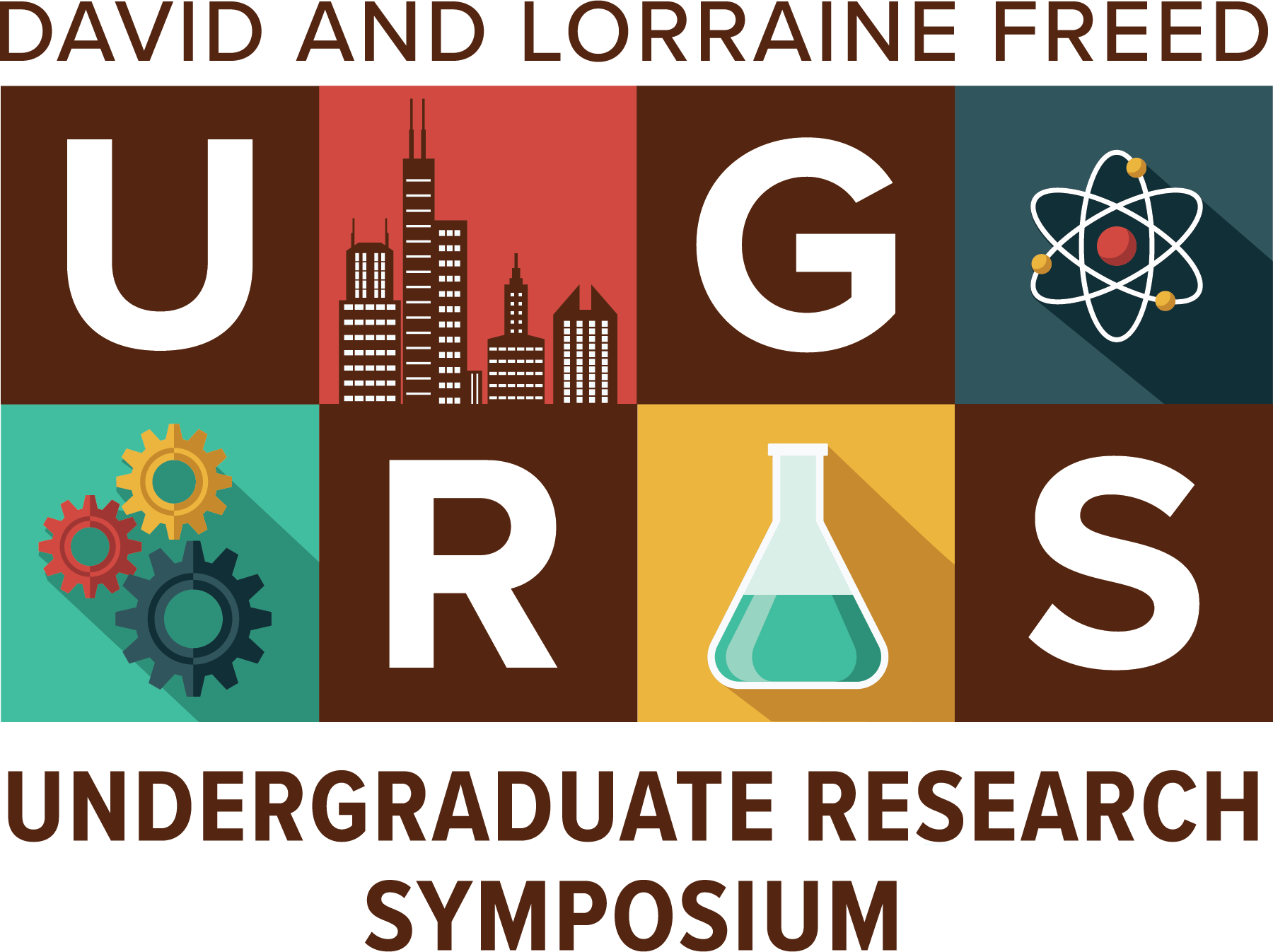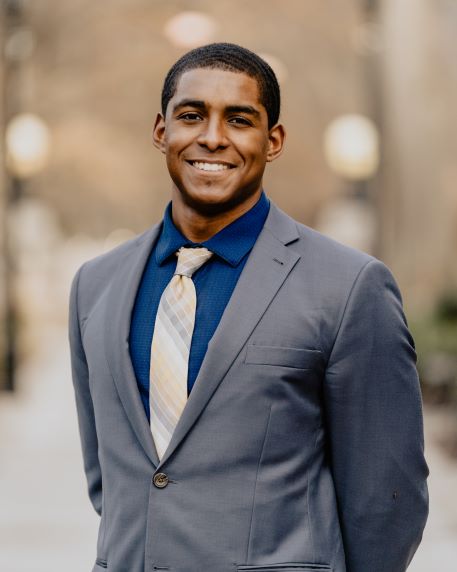
The David and Lorraine Freed Undergraduate Research Symposium, hosted by the P.C. Rossin College of Engineering and Applied Science, takes place 9 a.m. to 3 p.m., Wednesday, April 12, in Lehigh’s new Health, Science and Technology Building (124 E. Morton St., Bethlehem, PA).
The annual event brings together students from Lehigh University and Lafayette College―an academic extension of The Rivalry―to showcase undergraduate research achievement, celebrate experiential learning, and encourage students to use research to enrich their educational experiences.
New to this year’s UGRS is a community outreach component that will welcome students from Raub Middle School in Allentown, PA. This group of promising middle-schoolers who are interested in STEM (science, technology, engineering, and math) will spend the morning with the college researchers competing in the UGRS, and later tour Lehigh labs focused on microbiology, virtual reality, robotics, and structural engineering.
Members of the campus and local community are invited to stop in to check out the innovative projects spotlighted during the symposium. The event is a great opportunity for first- and second-year college students to learn first-hand about opportunities on Lehigh’s campus and get a sense if research might be a good fit.
An annual celebration of research and innovation
The symposium provides an opportunity for undergraduates to share work from a broad spectrum of engineering disciplines. This year, competitors will run the gamut from investment risk analysis, to flood prediction, to the fine art of photocatalysis.
For example, a project by Rha Overstreet ’23 (Integrated Business and Engineering) and Jesus Dominguez Castaneda (industrial and systems engineering), who are interested in financial markets and new technology, focuses on creating a safe stock portfolio. The pair are advised by Lehigh ISE assistant professor Akwum Onwunta.
“You choose a number of stocks that you would like to invest in and then you choose your risk level,” explains Overstreet. “Basically, how much are you willing to lose? The Conditional Variance at Risk method takes your risk level and creates a mathematically optimized portfolio. This portfolio theoretically protects you from major improbable losses, such as market crashes or pandemic panics.”
The next step, he says, is to use “machine learning techniques to predict stock prices, which would allow us to create different portfolio weights for different holding periods.”
Student-competitors will present their research before a panel of judges, who will pose follow-up questions. The presenters will interact with faculty, students, visitors, and staff attending the event throughout the day.
Winners selected by the judging panel will receive scholarships to attend professional conferences. Symposium attendees are encouraged to participate in the event by casting a vote for the People’s Choice Award.
Developed in 2005 by materials science professors Himanshu Jain and Wojciech Misiolek and endowed by alumnus and Lehigh Trustee Andrew Freed '83 in honor of his parents, the symposium encourages Lehigh students to enrich their learning experience through research.
According to Misiolek: “Conducting research as an undergraduate pushes students beyond the classroom. Hands-on research with postdocs and professors can help students decide if they want to do research or not, both being valuable lessons. It pushes students to explore beyond the textbook.”


